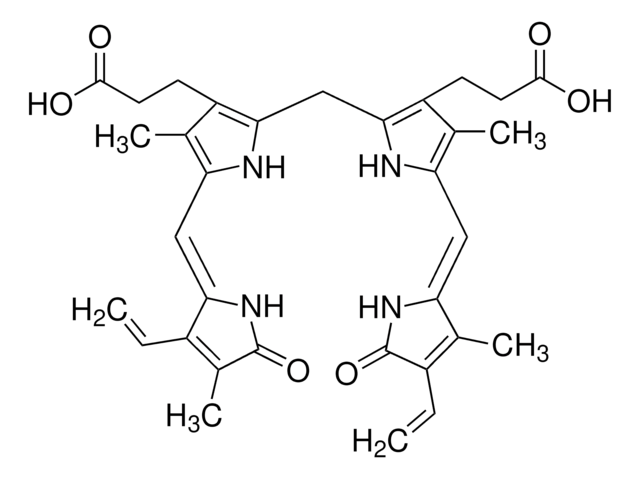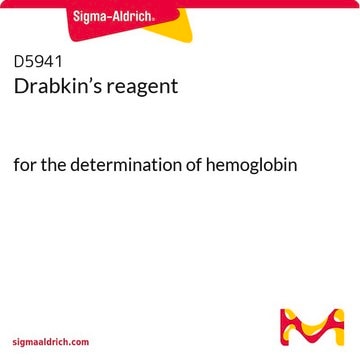H7379
Hemoglobin human
lyophilized powder
Synonym(s):
Hb
About This Item
Recommended Products
biological source
human
form
lyophilized powder
technique(s)
enzyme immunoassay: suitable
impurities
HIV and hepatitis B antigen, tested negative
solubility
H2O: soluble 20 mg/mL
storage temp.
2-8°C
Gene Information
human ... HBA1(3039) , HBA2(3040) , HBB(3043) , HBD(3045) , HBE1(3046) , HBG1(3047) , HBG2(3048) , HBQ1(3049) , HBZ(3050)
General description
Application
Biochem/physiol Actions
Caution
Disclaimer
Storage Class Code
11 - Combustible Solids
WGK
WGK 3
Flash Point(F)
Not applicable
Flash Point(C)
Not applicable
Certificates of Analysis (COA)
Search for Certificates of Analysis (COA) by entering the products Lot/Batch Number. Lot and Batch Numbers can be found on a product’s label following the words ‘Lot’ or ‘Batch’.
Already Own This Product?
Find documentation for the products that you have recently purchased in the Document Library.
Customers Also Viewed
Chromatograms
application for HPLCOur team of scientists has experience in all areas of research including Life Science, Material Science, Chemical Synthesis, Chromatography, Analytical and many others.
Contact Technical Service










